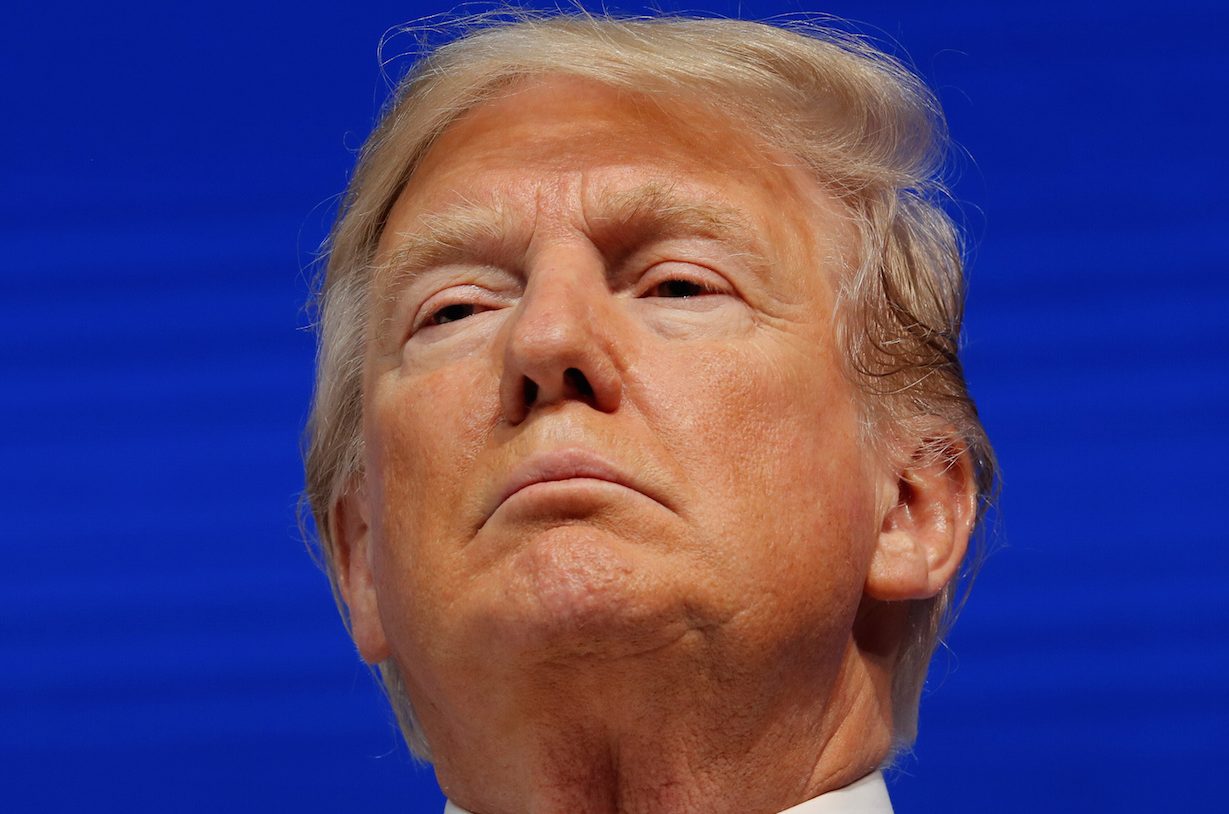- President Donald Trump will impose steel and aluminum tariffs on imports from the European Union, Canada, and Mexico starting Friday.
- The decision will most likely lead to retaliation from the three US allies.
- The tariffs will also cause major economic disruptions in the US, Canada, Mexico, and the EU.
- “I don’t know if it’s officially a ‘war’ yet, but it’s getting to be a pretty intense trade skirmish,” one trade expert said.
Not even the US’s closest allies can avoid being caught in President Donald Trump’s escalating trade battles.
Commerce Secretary Wilbur Ross on Thursday said steel and aluminum tariff exemptions for the European Union, Canada, and Mexico would expire at the end of the day. Starting Friday, he said, steel imports from those countries will be subject to a 25% tariff, and aluminum imports will be hit with a 10% tariff.
The US put in place exemptions for key allies after first announcing the tariffs in March. But the exemptions were designed only to be temporary reprieves.
With negotiations going nowhere, Trump decided to go forward with the tariffs.
The move is likely to trigger serious retaliation from the three countries and push the US to the edge of a trade war. France's finance minister, Bruno Le Maire, said after a meeting with Ross that the imposition of steel and aluminum tariffs would be a step into dangerous territory.
"The responsibility falls solely on to US authorities," Le Maire said. "Only they have to decide whether they want to enter a trade war with their closest partners."
The EU is expected to respond with tariffs on a little more than $3 billion worth of American goods including motorcycles, bourbon, and blue jeans.
Ross downplayed the disagreements during an interview with CNBC, suggesting that the change was a hiccup in US-European relations.
"These are blips on the radar screen - I don't think they change the fundamentals of the relationship," Ross said. "Everybody has spats every now and again. Every family does, every country does with others - there's nothing weird about that. I think everybody will get over this in due course."
Mexico also announced that it would hit back at Trump with "equivalent measures" on US products.
"Mexico has indicated on repeated occasions that this type of measure under the criteria of national security are not adequate nor justified," the government said in a statement.
'A pretty intense trade skirmish'
Edward Alden, a senior fellow at the Council on Foreign Relations, told Business Insider that Trump's decision may not technically constitute the start of a trade war - but was certainly close.
"There's no question this would be a very serious escalation in the trade conflict," Alden said.
Simon Lester, a trade-policy analyst with Cato Institute, also suggested that the president's escalation was pushing the US into dangerous territory.
"I don't know if it's officially a 'war' yet, but it's getting to be a pretty intense trade skirmish," Lester told Business Insider.
Beyond semantics, Alden said the decision to impose tariffs would cause major economic disruptions across Europe and North America.
"The EU, Canada, and Mexico make up about half of US steel imports, so the economic effect of these tariffs would be far more than anything we've seen to date," he said.
By increasing the cost of imported steel and aluminum, companies that rely on the metals will be forced to either accept the higher costs and lower profits or pass on the price increase to consumers.
For instance, the Beer Institute - an industry group that represents US brewers - warned that aluminum tariffs would drive up the price of beer cans. The Beer Institute estimated that the increased costs would in turn force brewers to save money in other areas, such as by laying off workers or raises the prices paid by consumers.
Outside the beer industry, multiple studies estimated that the steel and aluminum tariffs would result in a net loss of US jobs and hurt the domestic economy.
Concerns over the economic hit appeared to be weighing on US markets following Thursday's announcement, with the Dow Jones industrial average down roughly 175 points, or 0.7%, as of 10:30 am ET. Ross told CNBC that the downward move was not substantial and could be the result of many factors.
Alden said the increased trade tensions would eventually catch up to the market as Trump undertakes more and more tariff actions.
"At some point the markets will wake up to all of this and realize that it's a slow-motion train wreck that is happening little by little," he said.
A 'poisonous effect' on NAFTA negotiations
The imposition of steel and aluminum tariffs will not occur in a vacuum. The US is also engaged in negotiations with the US and Canada with the goal of updating the North American Free Trade Agreement.
The talks around the monumental trade deal are stalled out, and new tariffs aren't likely to help break the deadlock.
"I don't think it helps the NAFTA negotiations," Lester said. "Both Canada and Mexico will be put off by these tariffs and may be less likely to agree to anything for fear of looking like they are caving in to Trump's bullying."
The three countries are still trying to come to an agreement on a slew of major issues, including rules on areas as varied as auto imports and the ways investors can settle disputes with member countries. Given the delicate nature of these issues, which have vast implications for the Mexican and Canadian economies, Trump's saber rattling may hurt more than help, according to Alden.
"The steel and aluminum tariffs will have a poisonous effect on the NAFTA negotiations," Alden said.

